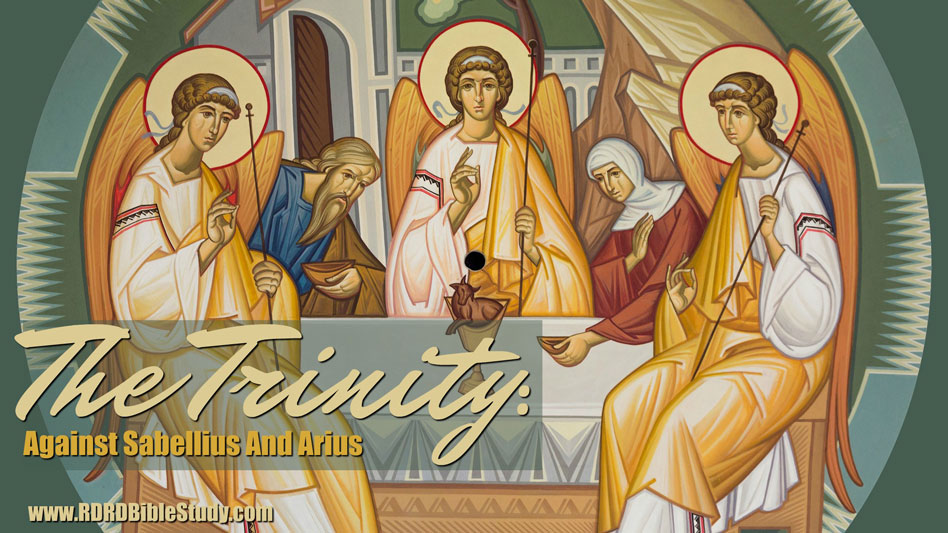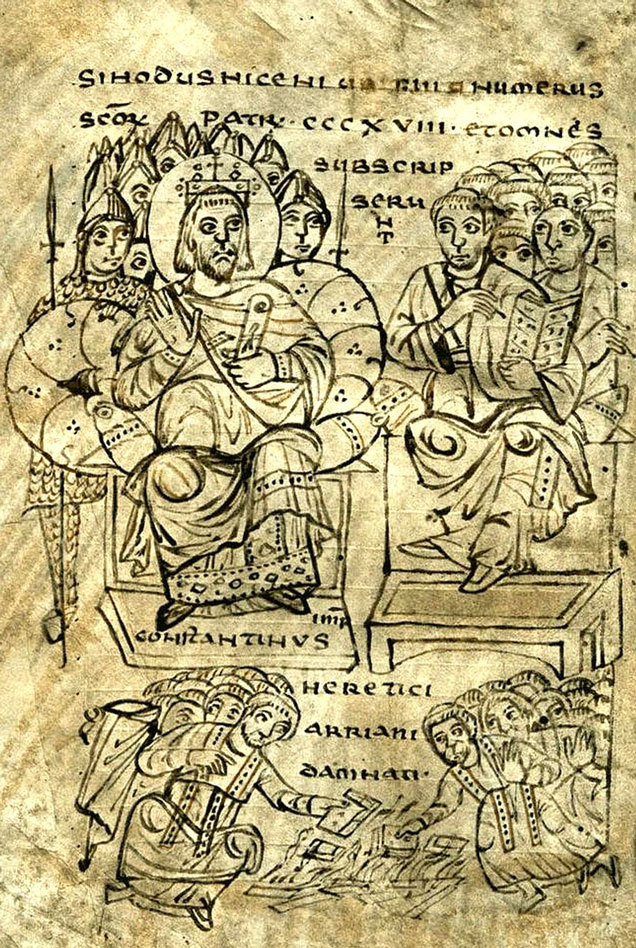Thinking Theology: The Trinity Against Sabellius And Arius
The Gospel Of John
The Apostle John begins his Gospel:
In the beginning was the Word, and the Word was with God, and the Word was God. He was in the beginning with God. John 1:1-2
Notice that John stresses the past tense using “was” four times:
In the beginning was the Word
The Word was with God
The Word was God
He was in the beginning with God
The word “with” is also highlighted in the second and fourth phrases—
The Word was with God.
He was in the beginning with God.
A person could stop here and understand completely that John understood Jesus to be God incarnate, the Creator of heaven and earth.
Expressing his understanding of Jesus in this way, makes clear the separate persons of God. The Word was God. And the Word was with God.
Natural reason understands that there is only one God. Scriptures throughout the Old and New Testaments teach this. But our natural reason struggles with the concept that three persons can be the same God.
Doctrine Of The Trinity
The Christian Doctrine of the Trinity says God the Father, God the Son, and God the Holy Spirit are three distinct persons in one Godhead (substance and essence are sometimes used instead of Godhead).
As stated in the theologically astute hymn:
Holy, holy, holy! Lord God Almighty!
All Thy works shall praise Thy Name, in earth, and sky, and sea;
Holy, holy, holy; merciful and mighty!
God in three Persons, blessed Trinity!
Early Heresies Surrounding The Doctrine Of The Trinity
Many heresies developed surrounding the doctrine of the Trinity.
- Sabellius (approx. AD 215) claimed that the Father, Son, and Holy Spirit are all one person.
- Arius (approx. AD 250) admitted that the Son was with God, but didn’t believe that the Son was God.
Emperor Constantine and the Council of Nicaea. The condemnation and burning of Arian books, illustration from a northern Italian compendium of canon law produced in northern Italy, ca. 825.
Sabellius’ taught too great a simplicity in God, mixing the persons together. This heresy is referred to as Sabellianism.
Arius taught too great a multiplicity, dividing the nature of God into three parts. This heresy is referred to as Arianism or The Arian controversy.
Because of church conflict and divisiveness over the issue of Arianism, the AD 325 Council of Nicaea was summoned by Emperor Constantine. The primary purpose of the council was to settle the issue of Christ’s divinity. This council marks a milestone of Christian history.
Faith
Christian faith teaches the individuality of the persons and the indivisibility of God’s nature. The Father is a different person from the Son, but he is not a different God.
Only faith can grasp this concept. Reason leads to heresy and error while faith clings to the truth of Scripture.
If you ever get confused, just sing the hymn… ♪♪ God in three Persons, blessed Trinity! ♪♪
Until Next Time –
The grace of the Lord Jesus Christ and the love of God and the fellowship of the Holy Spirit be with you all. 2 Corinthians 13:14










